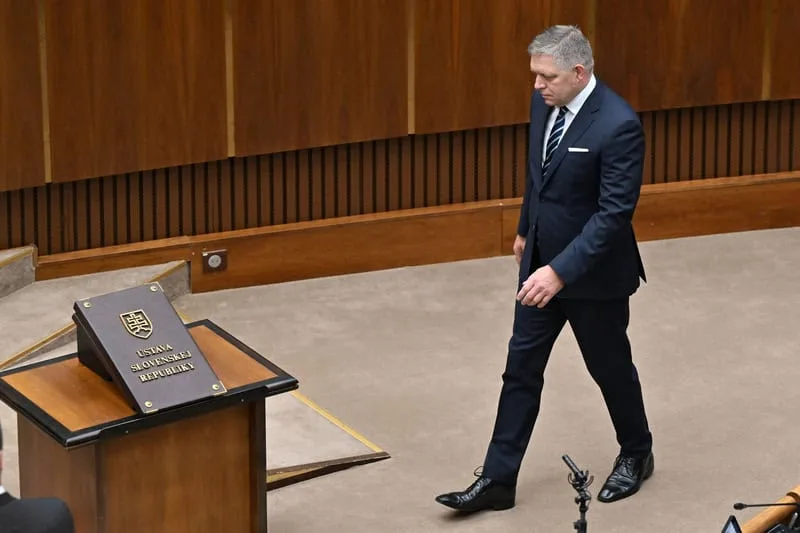Photo: CTK/Šálek Václav
Bratislava - The Slovak Chamber of Deputies today opened a debate on a request by Prime Minister Robert Fico's government to discuss proposals for changes in criminal law, including the abolition of the Office of the Special Prosecutor's Office (ÚSP), in an accelerated procedure. The ruling coalition is unlikely to succeed in abolishing the Office of the Special Prosecutor in the first half of January, as around 60 MPs intend to speak in the Chamber on the motion for accelerated consideration alone.
The European Public Prosecutor's Office (EPPO) said in December that the Fico cabinet's proposals pose a serious risk of undermining the rule of law. Slovak President Zuzana Čaputová, the European Commission and the US embassy in Slovakia have already opposed the fast-track approval of the amendment in one parliamentary session. Opposition parties are organising anti-government demonstrations.
In the past, the Office of the Prosecutor in Slovakia has supervised, for example, investigations into organised crime and the murder of journalist Ján Kuciak and his partner. In the previous three years or so, when Fico was an opposition politician, the ÚSP was also involved in investigations into cases from the former rule of Fico's Smer-Social Democracy (Smer-SD) party, in which dozens of people were accused, indicted or convicted, including former ÚSP chief Dušan Kováčik, who is already serving an eight-year prison sentence for corruption. Also awaiting trial is accused Smer-SD MP and former police president Tibor Gašpar. In addition to abolishing the ÚSP, the current Fico government has also proposed, for example, to reduce sentences for corruption and economic crime and to shorten the statute of limitations for crimes.
"The abolition of the Office of the Special Prosecutor is an outrage. It is an outrageous revenge for the fact that for three and a half years there was absolute equality before the law in Slovakia. Reducing sentences for economic crimes and corruption is more than an outrage, it is treason," said Gábor Grendel, a member of the opposition Slovakia (formerly OLaNO) party, in the debate. He added that the proposed changes will help criminals and that the government is destroying justice and endangering the country's security.
The cabinet originally wanted to push for the abolition of the ÚSP as early as mid-January of this year, but given the course of the House's deliberations and a possible veto by the head of state, it will probably not succeed. Opposition parties had already slowed down the House's deliberations on other bills in December by means of a filibuster, which led to the fact that MPs are only now debating the amendments to the criminal law. The government's own request for accelerated consideration of the material was made by Justice Minister Boris Susko before the Christmas holidays.
After the cabinet's request is approved, for which the ruling parties have enough votes in the chamber, the MPs will deal with the draft in the first and then in the second reading. Only then will they vote. If the House approves the package of changes to the criminal law, the head of state will be able to veto the law. Čaputová has previously indicated that she is ready to use her powers in this matter.
CTK/GN.CZ/JaV_07



